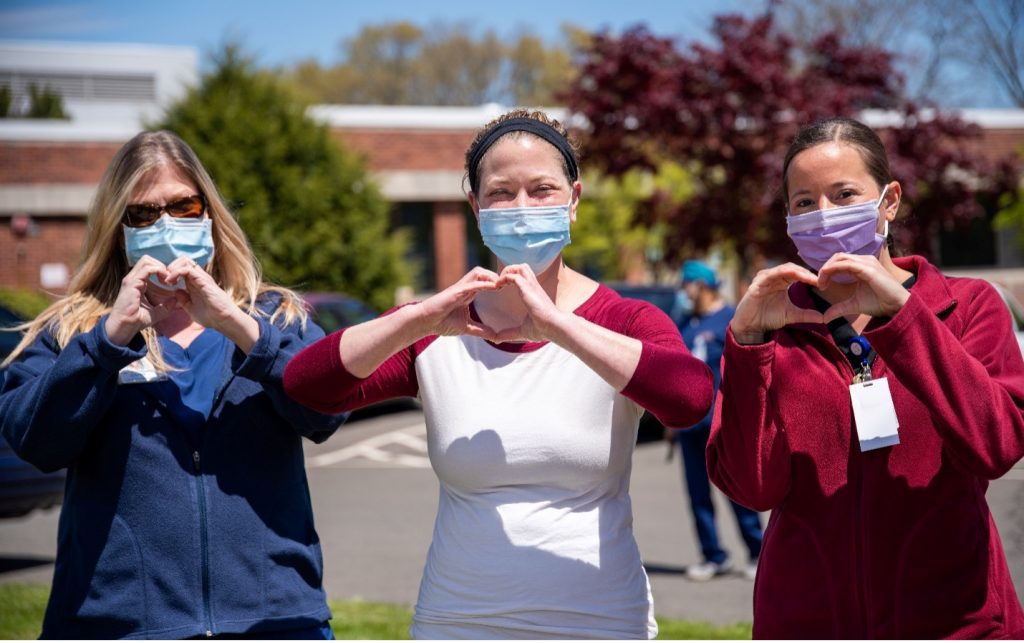Today I want to give a shout out to our Certified Nursing Assistants that work tirelessly in our nursing homes every single day, providing the most intimate care to our loved ones.
While on-site today with an Infection Preventionist, I met a CNA during some one-on-one training and education. After concluding our business, she went on her way, only to reappear a few minutes later visibly shaken and in tears. When the IP asked her what was wrong, she replied, “It never gets easier.” A resident was actively dying, a woman the CNA had been actively caring for for months. The resident had even left a letter of thanks for her.
Our nursing aides are truly the foundation of our nursing homes. A fantastic report from the Paraprofessional Healthcare Institute in April, 2016 speaks to how a higher quality job will lead to higher levels of care for our residents. These estimated 650,000 nursing assistants do our heavy lifting and carrying, provide intimate bodily care, and possibly the most important, provide emotional support. These unsung heroes are there to wake the residents in the morning and put them to bed at night, ensuring they are bathed, groomed, and dressed. They lift them from their beds if need be, and take them to meals and activities, and various appointments. They are there when a resident needs to use the restroom, or needs a glass of water, or just needs to go outside to be in the sun. They provide the physical, emotional, and social support that is vital to our residents. Often underpaid and only offered part-time schedules (no benefits such as PTO, sick time, educational opportunities, health insurance, etc.), yet we couldn’t operate our facilities without them.
The report also states, “Median annual earnings for nursing assistants – $19,000 – reflect not only low hourly wages (Median wage: $11.51 per hour) but also part-time hours. Less than half the workforce (45 percent) has full-time, year-round work. There is also evidence of erratic scheduling, with more than half of the workforce (55 percent) reporting overtime hours in the past year. To make ends meet, many nursing assistants rely on public assistance. Medicaid, food stamps, and cash assistance provide additional support for one in three (38 percent) nursing assistant households.”
Providing higher quality care for our residents begins with investing in the lives of the individuals caring for them every day. I want to share the key solutions that while by no means will be easy to implement, we can use these as a map to begin to move toward improving these positions:
- Improve compensation – Better wages will attract and retain nursing assistants. Since employers depend on public reimbursement, establishing a portion tied directly to the wages and benefits of low-wage staff is key. Access to benefits like health care would accurately reflect the dignity of their work.
- Provide full-time jobs and consistent schedules – Not only helps low-wage workers achieve economic stability but allows for management of family and other demands outside of the workplace.
- Strengthen training – Improves the competencies needed to care for residents with increasingly complex and chronic health conditions and needs.
- Ensure opportunities for advancement – Increases job satisfaction and decreases turnover and contributes to a stronger workforce overall.
- Invest in new models of care – Opportunities to participate in interdisciplinary teams have been linked to improvements in worker satisfaction and retention.
Again, I understand this is a long, difficult road. But as long as we have the map, and begin taking steps in the right direction, we are making progress toward a better level of care, and a better industry overall. Thank you to our CNAs and all of our healthcare worker superheroes out there. Be safe and be well.

